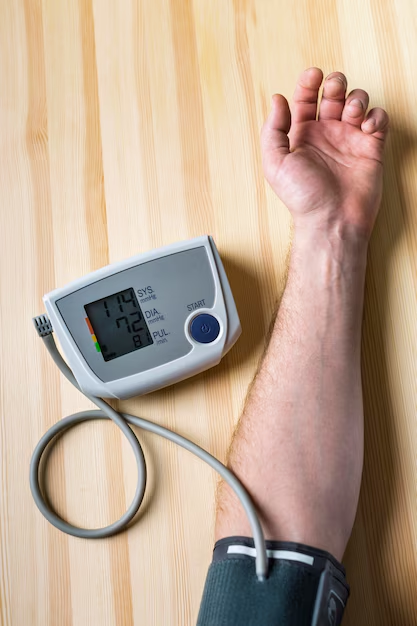High blood pressure, or hypertension, is often called the “silent killer” because it develops without noticeable symptoms. While many people associate hypertension with stress, poor diet, and lack of exercise, lesser-known factors may also contribute to elevated blood pressure. Identifying these hidden causes can help you take proactive steps toward better heart health.
If you’re looking for expert guidance,best physicians in Indore and specialists in hypertension management can help you understand and control your blood pressure effectively.
1. Sleep Apnea – The Silent Disruptor
Many people don’t realize that sleep disorders, especially obstructive sleep apnea (OSA), can contribute to high blood pressure. When breathing repeatedly stops during sleep, oxygen levels drop, causing the body to release stress hormones that elevate blood pressure.
What You Can Do:
- If you experience loud snoring, daytime fatigue, or gasping for breath at night, consult a specialist.
- Maintain a healthy weight, as obesity increases the risk of sleep apnea.
- Consider lifestyle modifications or medical interventions for better sleep quality.
2. Hidden Salt in Your Diet
Even if you avoid adding extra salt to your meals, hidden sodium in processed foods can significantly raise your blood pressure. Canned soups, sauces, and even so-called “healthy” snacks may contain high sodium levels.
How to Reduce Hidden Sodium:
- Read nutrition labels and choose low-sodium alternatives.
- Cook fresh meals using herbs and spices instead of salt.
- Drink plenty of water to help your body flush out excess sodium.
3. Certain Medications and Supplements
Some over-the-counter (OTC) and prescription medications can contribute to high blood pressure. Common culprits include:
- Pain relievers that may cause fluid retention and affect kidney function.
- Decongestants often found in cold and allergy medications that constrict blood vessels.
- Certain herbal supplements, like licorice root, which can interfere with blood pressure regulation.
What to Do:
- Always check with your doctor before taking new medications or supplements.
- Explore alternative pain management strategies if you have concerns.
4. Chronic Dehydration
Dehydration reduces blood volume, making the heart work harder and increasing blood pressure.
Hydration Tips:
- Aim for at least 8 glasses of water daily.
- Monitor urine color—it should be light yellow.
- Limit caffeine and alcohol, as they contribute to dehydration.
5. Hormonal Imbalances
Conditions like hypothyroidism, Cushing’s syndrome, and polycystic ovary syndrome (PCOS) can lead to high blood pressure by affecting hormone levels.
What to Watch For:
- Unexplained weight gain
- Fatigue and mood changes
- Irregular menstrual cycles (for women)
If you suspect a hormonal imbalance, consult a general physician in Indore for appropriate tests and treatment.
6. Poor Gut Health and High Blood Pressure
Emerging research suggests a strong link between gut bacteria and blood pressure regulation. An imbalance in gut microbiota may contribute to inflammation and hypertension.
Steps to Improve Gut Health:
- Eat a fiber-rich diet with fruits, vegetables, and whole grains.
- Consume probiotics like yogurt or fermented foods.
- Reduce sugar and processed food intake.
7. Loneliness and Chronic Stress
Social isolation and chronic stress increase stress hormone production, which can contribute to persistent high blood pressure.
Stress-Reduction Techniques:
- Engage in relaxation techniques like meditation or yoga.
- Maintain social connections to combat loneliness.
- Seek professional hypertension consultation in Mahalaxmi Nagar for personalized stress management strategies.
8. Environmental Factors – A Hidden Threat
Exposure to pollutants, heavy metals, and loud noise pollution can negatively impact blood pressure. Studies indicate that long-term exposure to environmental toxins may lead to vascular inflammation and hypertension.
How to Reduce Exposure:
- Use air purifiers to reduce indoor pollutants.
- Avoid prolonged exposure to heavy traffic and industrial areas.
- Maintain a healthy lifestyle to counteract environmental effects.
FAQ – Common Questions About High Blood Pressure
1. Can I have high blood pressure without symptoms?
Yes, hypertension is often asymptomatic, which is why regular check-ups are essential. A hypertension specialist in Vijaynagar can help monitor and manage your condition.
2. How often should I check my blood pressure?
If you’re at risk, monitor your blood pressure at home regularly and visit your doctor at least twice a year.
3. What is the best diet for high blood pressure?
The DASH (Dietary Approaches to Stop Hypertension) diet is highly recommended. It includes:
- Fruits and vegetables
- Whole grains
- Lean proteins like chicken and fish
- Low-fat dairy
- Minimal processed foods and added salt
Conclusion
Understanding these hidden causes of high blood pressure allows you to take a proactive approach to your health. From managing sleep disorders and gut health to monitoring medications and stress, small lifestyle changes can make a big difference.
If you’re concerned about hypertension, schedule a hypertension consultation in Mahalaxmi Nagar for expert guidance. The best doctors for blood pressure management in Indore can provide personalized advice to help you maintain healthy blood pressure.
💡 Take Action Today! Book a consultation with a general physician in Indore or a hypertension specialist in Vijaynagar to protect your heart health.



